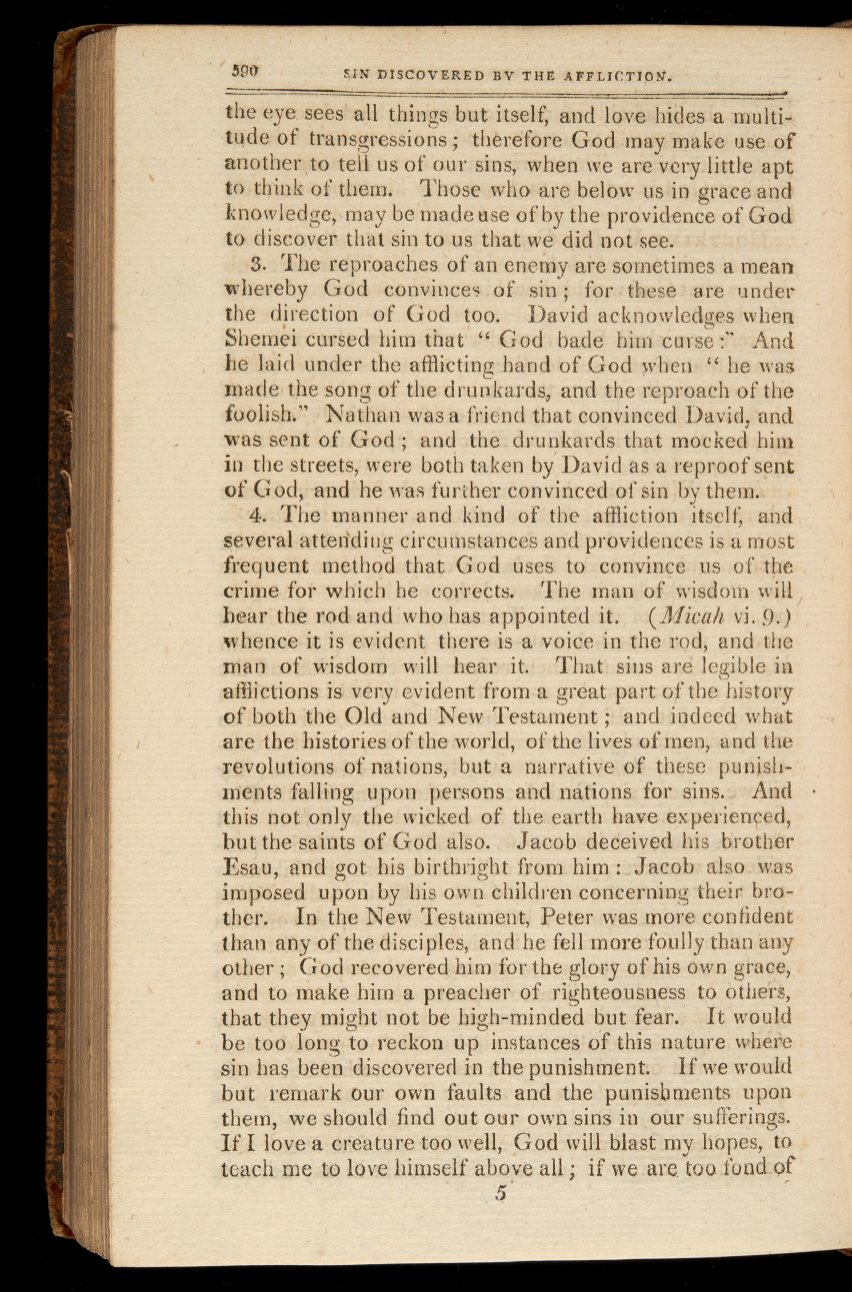

5Ao
SIN
DISCOVERED
BV
THE
AFFLICTION.
the
eye sees all things
but
itself,
and
love hides a multi-
tude
of
transgressions
;
therefore
God
may
make
use
of
another
to tell
us
of
our
sins,
when
we
are
very
little
apt
to
think
of
them.
Those
who
are
below
us in
grace and
knowledge,
may be
made ase
of
by
the providence
of
God
to discover
that
sin
to
us
that
we
did
not
see.
3.
The reproaches of
an
enemy
are
sometimes
a
mean
whereby
God
convinces
of
sin
;
for these are
under
the direction
of
God
too.
David acknowledges
when
Shemei cursed
him
that
"
God
bade
him
curse
:"
And
he laid
under
the
afflicting
hand
of God
when
"
he was
made
the song
of
the
drunkards,
and the
reproach
of
the
foolish."
Nathan
was a
friend
that
convinced David, and
was
sent
of God
;
and
the
drunkards that
mocked
him
in
the streets,
were both
taken by David
as a
reproof
sent
of
God,
and
he was
further
convinced of
sin
by
them.
4.
The manner
and
kind
of
the
affliction itself,
and
several
attending
circumstances and providences
is
a most
frequent
method
that
God
uses to convince
us
of
the
crime for which
he
corrects.
The
man
of
wisdom
will/
hear
the
rod and
who has
appointed
it.
(Micah
vi.
9.)
whence
it
is
evident there
is
a
voice
in
the
rod, and the
man
of
wisdom
will
hear
it.
That
sins
aré
legible in
afflictions
is
very
evident
from a
great
part of
the history
of
both the Old and New
Testament
;
and indeed what
are
the
histories of the
world,
of
the
lives
of
men,
and the
revolutions of
nations, but a
narrative of
these
punish-
ments falling upon persons and nations for
sins..
And
this
not
only
the
wicked
of the earth
have experienced,
but
the saints
of God
also.
Jacob
deceived
his
brother
Esau,
and got
his
birthright
from
him
:
Jacob
also
was
imposed upon
by his
own
children concerning their bro-
ther. In
the New Testament,
Peter
was
more confident
than
any
of
the disciples, and-he
fell
more
foully
than any
other
;
God
recovered
him
for
the glory
of
his own grace,
and
to
make
hire
a preacher
of
righteousness
to others,
that
they might
not
be
high-
minded but fear.
It
would
be
too long to reckon up instances
of
this
nature
where
sin
has been discovered
in
the punishment.
If
we
would
but
remark
our
own
faults
and the punishments
upon
them,
we should find
out
our
own
sins
in
our
sufferings.
If
I
love
a
creature
too
well,
God
will
blast
my hopes, to
teach
me to
love
himself above
all;
if
we
are
.
too
fond_Qf
5

















